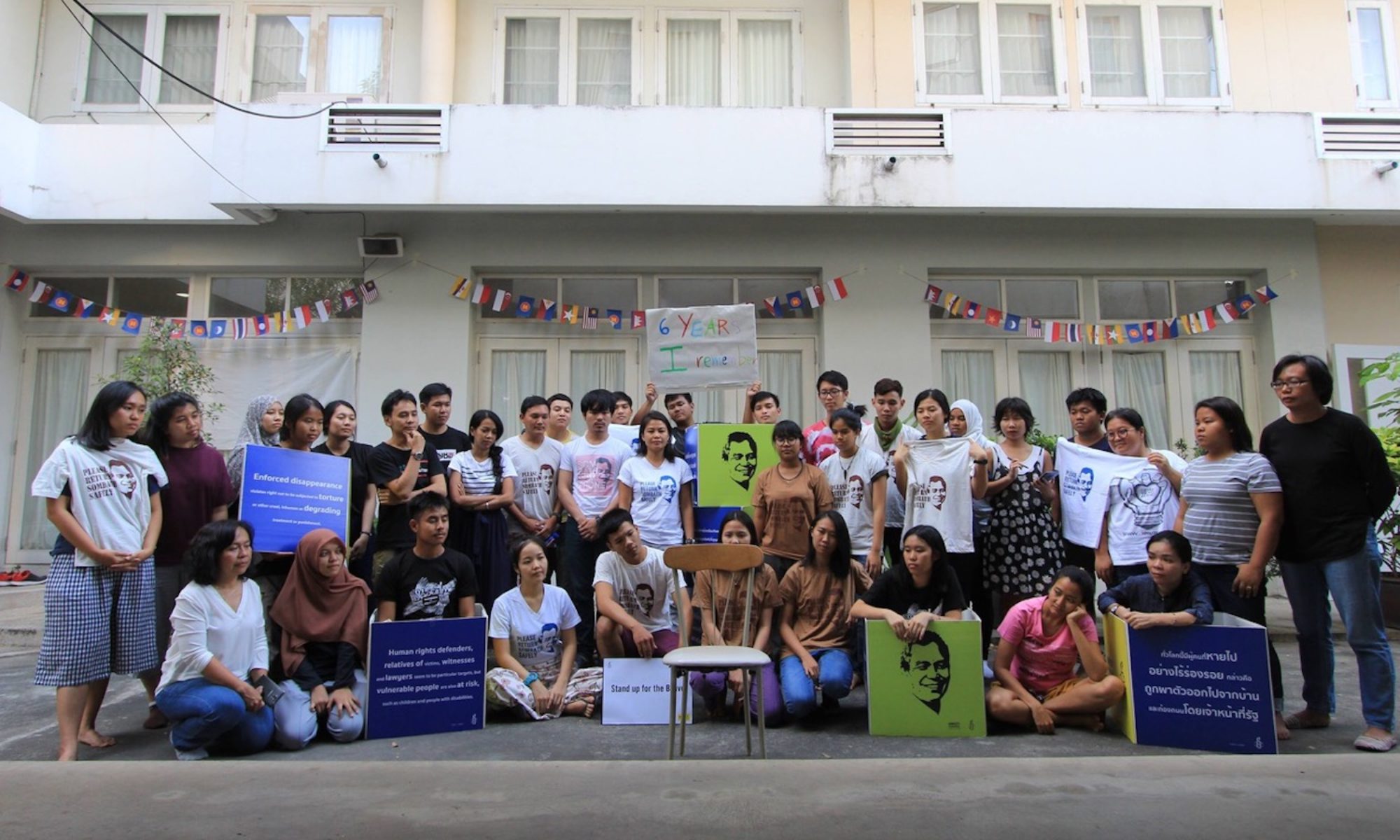
Human Rights Watch: 15 December 2016
Sombath Somphone Still Missing After Four Years
(Bangkok) – The Lao government has made no progress accounting for civil society leader Sombath Somphone, who was forcibly disappeared on December 15, 2012, Human Rights Watch said today. Four years after he was stopped at a police checkpoint in the capital, Vientiane, the government needs to provide information on his fate or whereabouts.
“Since the start, the Lao government’s investigation of Sombath Somphone’s disappearance has been a pattern of delay, denial, and cover-up,” said Phil Robertson, deputy Asia director. “Four years on, Sombath’s family is no closer to learning the truth about his fate than they were in the weeks after he went missing.”
A police closed-circuit television (CCTV) camera on the evening of his arrest shows police stopping Sombath’s jeep and leading him into the checkpoint. The footage shows unidentified individuals bringing Sombath out within minutes and putting him into another vehicle, which then drives away. Another individual later drives away in Sombath’s jeep.
Last December, Sombath’s family released new CCTV footage obtained from the same area as the police checkpoint that shows Sombath’s jeep being driven back to the center of Vientiane. At a minimum, this should have prompted a review of other CCTV cameras along the main route the car was taking back into the city.
There is no evidence of any serious government investigations into the enforced disappearance. Lao authorities have not organized a specific briefing on the status of the case for Sombath’s family since June 2013.
An enforced disappearance is defined under international law as the arrest or detention of a person by state officials or their agents followed by a refusal to acknowledge the deprivation of liberty, or to reveal the person’s fate or whereabouts. Enforced disappearances inflict unbearable cruelty not just on the victims, but on family members, who often wait years or decades to learn of their fate. Under international law, “disappearances” are considered a continuing offense, one that is ongoing so long as the state conceals the fate or the whereabouts of the victim.
Laos signed the International Convention for the Protection of All Persons from Enforced Disappearance in September 2008, but has yet to ratify it. International donor agencies should press the government to ratify the treaty and adopt national legislation to implement its requirements.
The government’s continued failure to seriously investigate cases of enforced disappearance violates its obligations under the International Covenant on Civil and Political Rights, to which Laos is a party. The covenant states that governments must provide an “effective remedy” for violations of basic rights, including the right to liberty and security of person.
“Over decades of his work in grassroots rural development, Sombath inspired thousands of Lao farmers and their families with simple yet innovative techniques to help them farm better and live better,” Robertson said. “But today, Sombath’s uncertain fate prompts fear among Lao civil society groups that their survival is at the whim of the government.”


